For me there’s another level of dreadfulness in the horror that unfolded at the Charlottesville, Virgina rally last week. My son, who walked the Lawn in May, is UVA class of 2017. My daughter graduated in 2015. I’m class of 1979. Richard Spencer is class of 1997.
We received no solace or wisdom from America’s president, who expressed more passion mourning Confederate statuary than those killed and injured in Charlottesville.
Spencer is the slick, handsome white supremacist who helped unleash “Unite the Right” on the sleepy Virginia university town where I once spent drowsy afternoons sprawled on The Lawn discussing Proust, Blake, and what to wear on Saturday night. The night before the main rally, a screaming rabble wielding torches stormed across this gentle academic landscape, past Jefferson’s iconic rotunda, and surrounded his statue like wrathful villagers in a bad remake of Frankenstein.
Where’s An Exorcist When You Need One?

Tina Fey offers one way to deal with the horrific political climate.
“We need an exorcism on The Lawn,” Larry Sabato, director of the university’s renowned Center for Politics and a 1974 graduate tweeted afterward. The savvy political analyst nailed it. Spencer and his colleagues summoned demons who twisted the image and meaning of Charlottesville into something dreadful, hate-filled, and deadly. We received no solace or wisdom from America’s president, who expressed more passion mourning Confederate statuary than those killed and injured in Charlottesville.
Since then, thousands, including myself and other UVa alumni, have gathered on the Lawn, at the Jefferson Memorial, and in the streets of cities across the nation to do what our president seemed reluctant to do: condemn racial and religious hate. My favorite moment had to be Tina Fey’s (UVa Class of 1992) splendid sheet cake monologue. One funny woman armed with nothing more than a college sweatshirt and sticky icing took down thousands of screaming men with guns. What a good start to Sabato’s exorcism. But now that the hate rallies, the violence, and the feel-good moments are, at least, temporarily over, it’s time to decide how to move forward. To do that we have have to examine our past.
One funny woman armed with nothing more than a college sweatshirt and sticky icing took down thousands of screaming men with guns.
Last week I had to wonder, were the torch-bearing zealots who surrounded Thomas Jefferson Friday night threatening him, or paying tribute? Because Jefferson, or TJ as we fondly call him at UVa, left us a complex legacy.
Jefferson’s Complex Legacy
Jefferson wrote incomparable words that underpin our democracy: “We hold these truths to be self-evident, that all men are created equal, and endowed by their creator with certain unalienable rights…” while owning slaves. In 1819, he established the University of Virginia to expand education beyond the sphere of elites, but he gave only white men, mostly sons of wealthy landowners, the right to live in his “Academical Village.”
It’s a wonder that a genius like Jefferson didn’t see what was coming. These Virginia gentlemen behaved like boors, drinking, gambling and fighting on the Lawn designed for debating great ideas. TJ found them appalling, to the point this illustrious orator was rendered speechless while addressing them, describing it as one of the most painful moments of his life. In hindsight, the answer to Jefferson’s problem seems obvious, at least to me: admit students with a different life experience and perspective, perhaps a dark skinned man who skillfully laid the red bricks of the Rotunda, or a smart woman with a nice big sheet cake.
Even during the turbulent sixties, UVa had essentially remained conservative, southern, white and male.
Instead, the nation had to fight the Civil War, two World Wars, and put a man on the moon before UVa finally fully admitted women in 1970, giving me the right to set my platform sandals on the green grass of The Lawn in the fall of 1975. The first African American undergraduates preceded me by just twenty years. Even during the turbulent sixties, UVa had essentially remained conservative, southern, white and male. These boys in blue blazers and UVa ties were not Nazis and White Supremacists, just young men whose world was limited by the fact that when they looked around they were essentially looking in a mirror.
Taking Off The Blinders
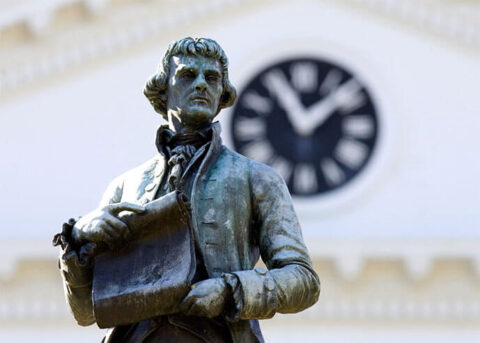
Should we celebrate or shun this imperfect man?
Still, some of those charming gentlemen willingly loosened their ties, expanded their minds, and opened the doors of Jefferson’s Academical Village to the rest of us. Not everyone jumped on the welcome wagon. A handful of professors barely tolerated women. Black students remained largely exiled from the university’s active social life, which revolved around sororities and fraternities. During my time there, the president of UVa dodged a meeting with the Gay Student Union to attend the theater, demonstrating a shocking lack of both sensitivity and irony, and the cafeteria served bagels for Passover
I did not always pay attention to these inequities. I was too busy devouring grillswiths (Charlottesville’s signature treat, two grilled donuts with, appropriately, vanilla ice cream), dancing to The Four Tops, and sweating over UVa’s legendary three-hour exams. If you’d asked me then, I would have proudly declared I was part of a generation of women who were flooding universities and the workforce and upending the social order. What I didn’t realize is that I wore an updated version of the blinders sported by those earlier Virginia Gentlemen. I had not one close friend who was not like me, white and middle class. I didn’t even notice.
I had not one close friend who was not like me, white and middle class. I didn’t even notice.
This was hardly unique to me or UVa, but when I saw those torches sweep toward the Rotunda, I worried. Did these zealots believe people like me were secretly wringing their hands over a changing university and country, waiting like fainting southern belles to be swept back into the glorious past in the arms of big strong white men with clubs, Nazi armbands, and semi-automatic weapons?
The Problem With Parallel Worlds
If so, the reaction of almost everyone (President Trump? Hello?) proved them wrong. But if we’re not all closet racists, xenophobes, and anti-semites, many of us mistakenly believed we’d moved into some kumbaya post-prejudice America. We’d elected the first African American president, after all. When I dropped my children off with their bed-in-a-bags at UVa, I saw Indian grandmothers in saris, families chattering in Chinese, and openly gay students.
But at UVa, as in the rest of America, we too often exist in parallel worlds. When the weekend comes, we don’t come together at barbecues, at houses of worship or over grillswiths. Despite the increasing overall diversity at UVa, African American enrollment has fallen from a high of twelve percent to just over six percent last year. I hate to think that is because the descendants of the men and women who helped build my beautiful university feel unwelcome there.
“If you’ve wondered what you would’ve done during slavery, the Holocaust, or Civil Rights movement…you’re doing it now.”
Richard Spencer and his ilk feed on despair and resentment and sell followers a false vision of a mythological past. Remember, the most dangerous men are never the ones with the clubs and guns and torches. They’re the individuals whose ideas motivate them and the ones like our president, whose lack of ideas creates space for mayhem and oppression to thrive. We have the better ideas –equality, unalienable rights, life, liberty, pursuit of happiness–but the events of the past few weeks demonstrated it’s not enough to sit back and think them. In the words of my friend Patricia Lyons, an Episcopal priest and author (who, unfortunately, chose to attend Harvard): “If you’ve wondered what you would’ve done during slavery, the Holocaust, or Civil Rights movement…you’re doing it now.”
Instead of Tweeting, Try This
Not everyone can become a full-time civil rights activist. But as women who love our families, our schools and our communities, we can reach across barriers of race, gender, class and political affiliation. After last November’s election, I witnessed a frenzy of gleeful “unfriending” on social media. We increasingly only talk to those who reinforce our own views. The difference between Facebook and real life, however, is that in real life we’re all stuck on the same page.
Thomas Jefferson, our conflicted founder, believed one never stops learning.
We need to engage each other, not in rant fests in cyberspace or in the streets. Gregory Jackson, Jr., the UVa alum who organized our DC candlelight vigil, suggested mentoring young people, who after all learn by example. We can work on political campaigns. We can join our alumni organizations and discuss how to move our schools and universities forward, maintaining the traditions we love and expanding them to include others. We can talk to the stranger next to us on the bus or in Starbucks instead of tweeting.
In doing so, we will meet people who don’t look, think, or believe exactly as we do. We will have uncomfortable discussions about race, religion, Confederate statues, whose lives matter, guns, abortion, and whether it’s really a grillswith when you use chocolate ice cream. Thomas Jefferson, our conflicted founder, believed one never stops learning. While some students, faculty, and alumni want us to no longer quote or mention Jefferson, I prefer we take his brilliant ideas and move them forward rather than exiling him with the Nazis. What I learned watching hate swarm The Lawn and our founder was that despite the progress we’ve made, the blood we’ve shed and the victories we’ve won, our work as a university, a community, and a country is far from done.

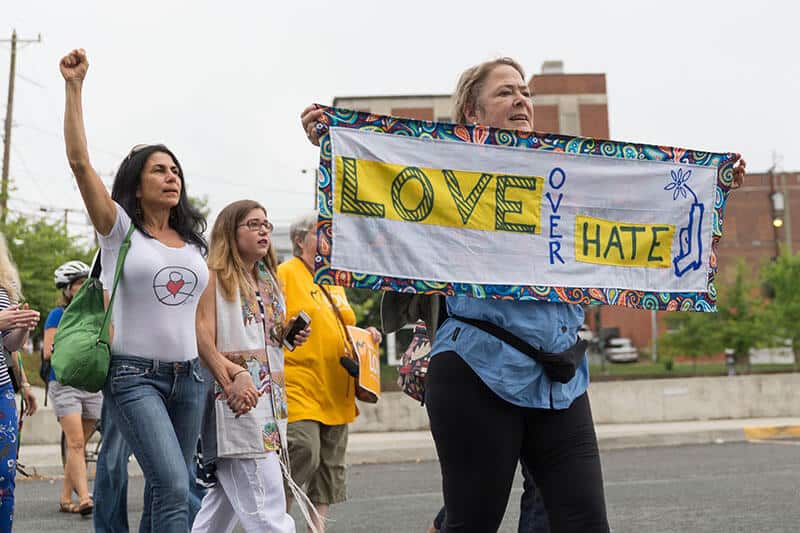

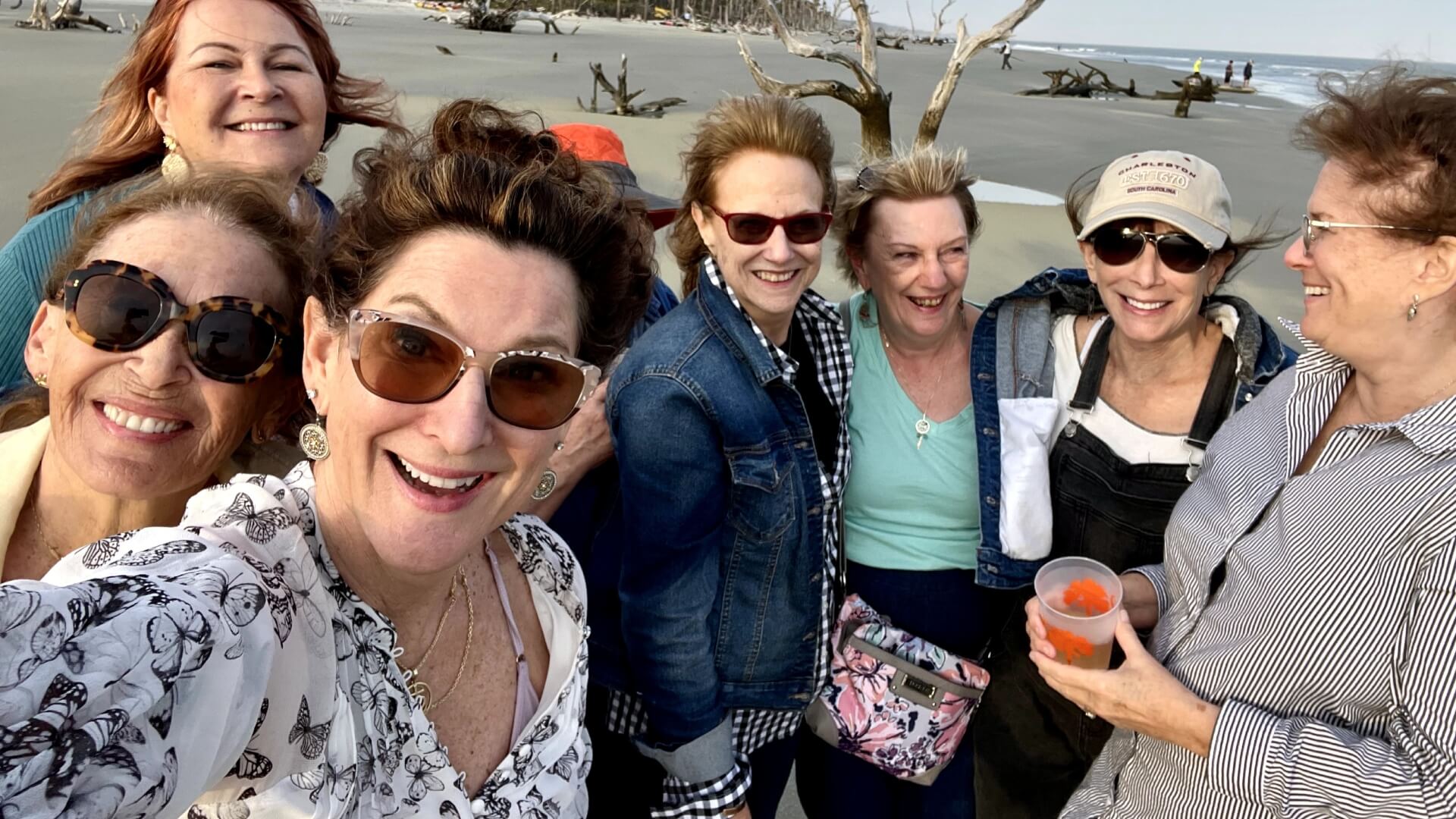
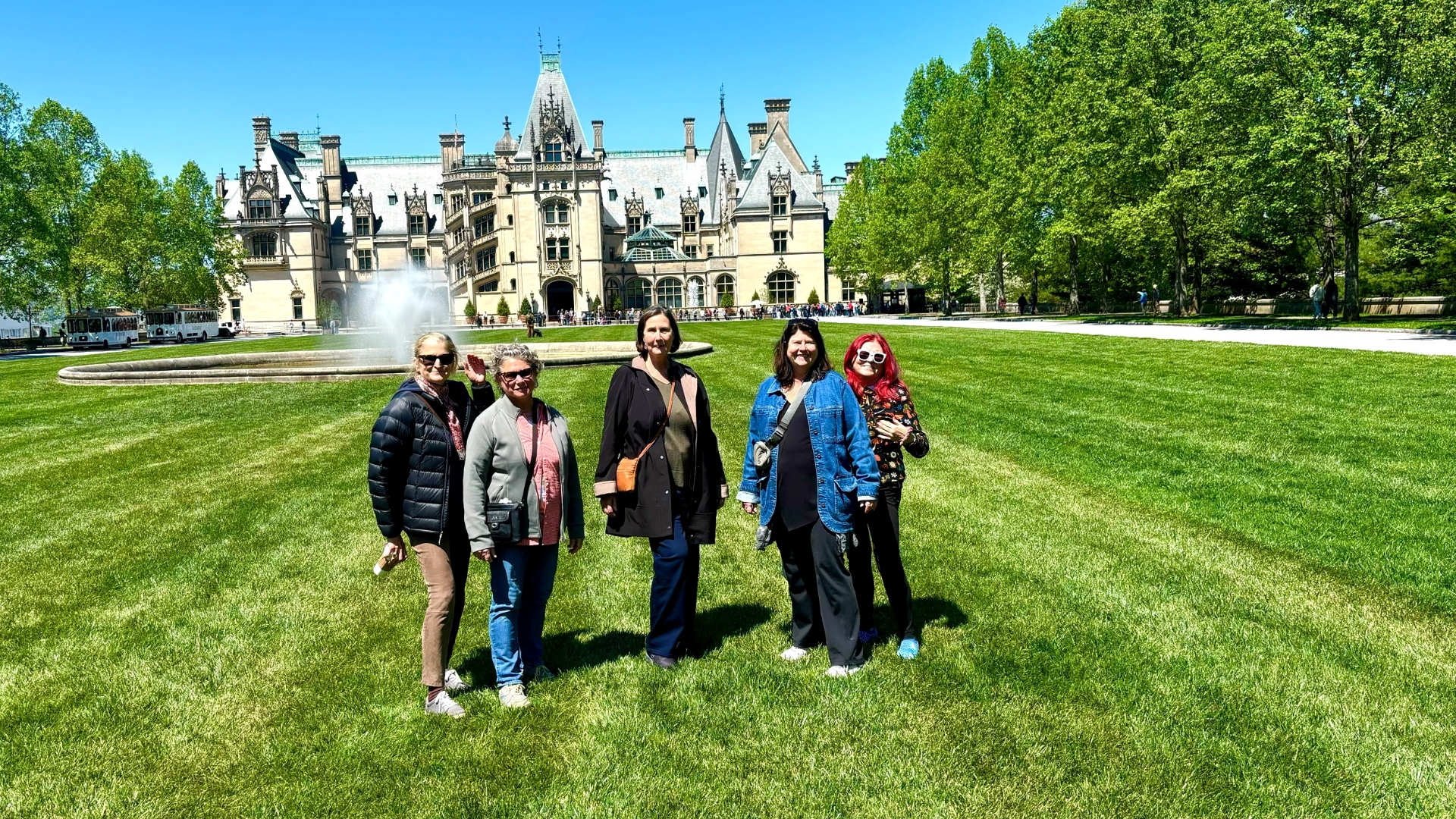

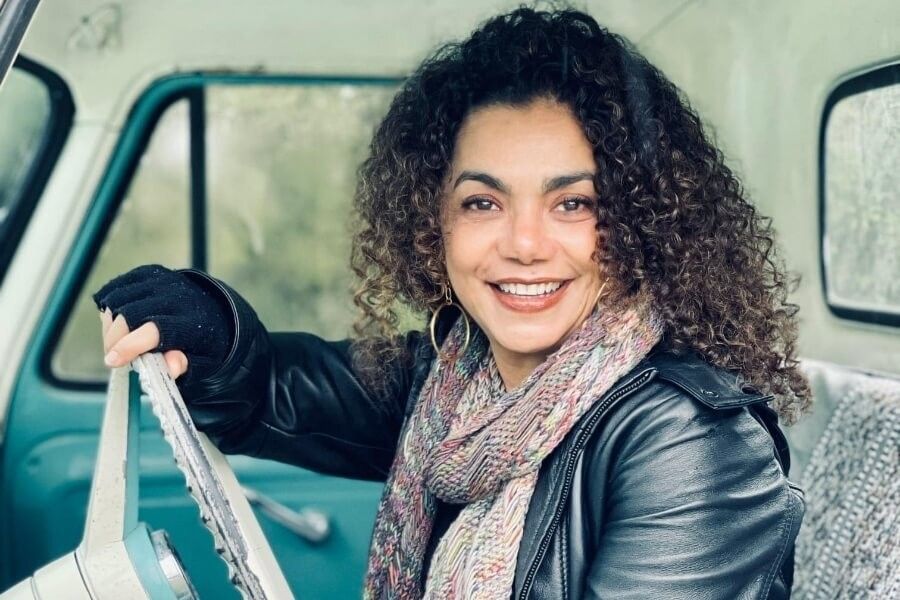
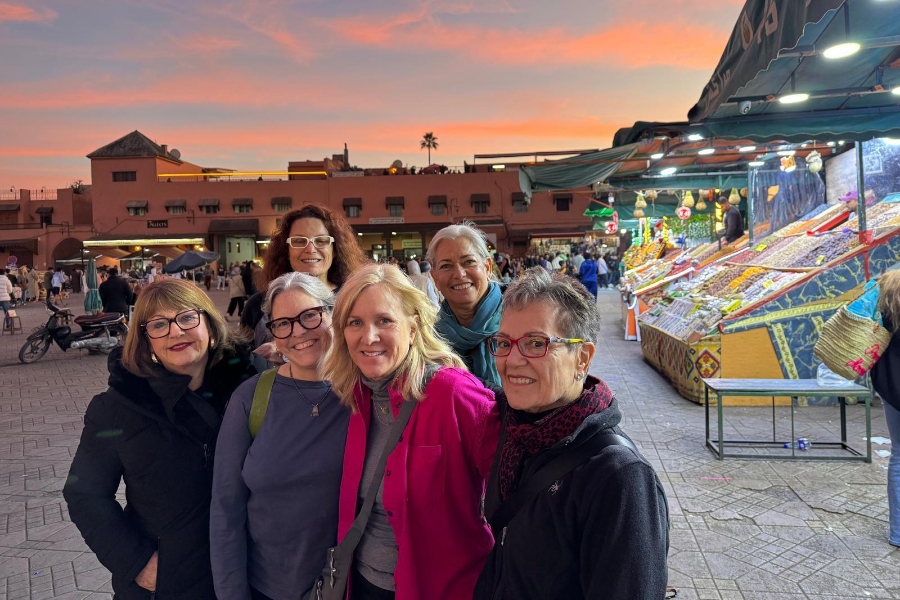
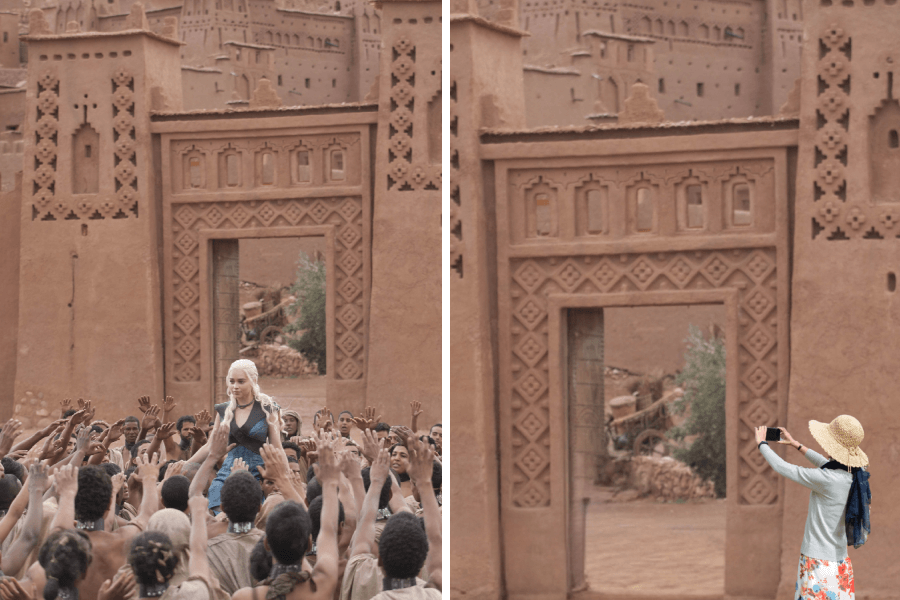


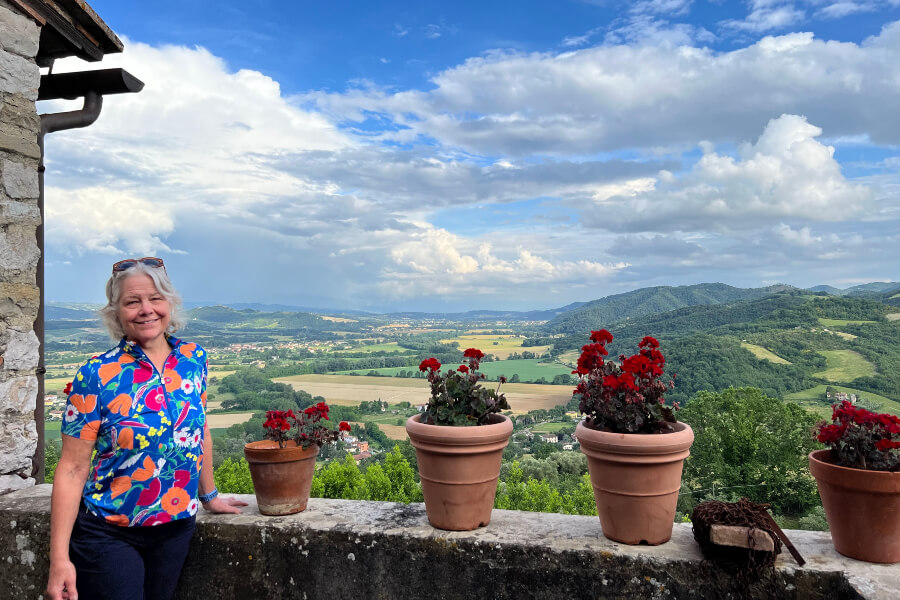
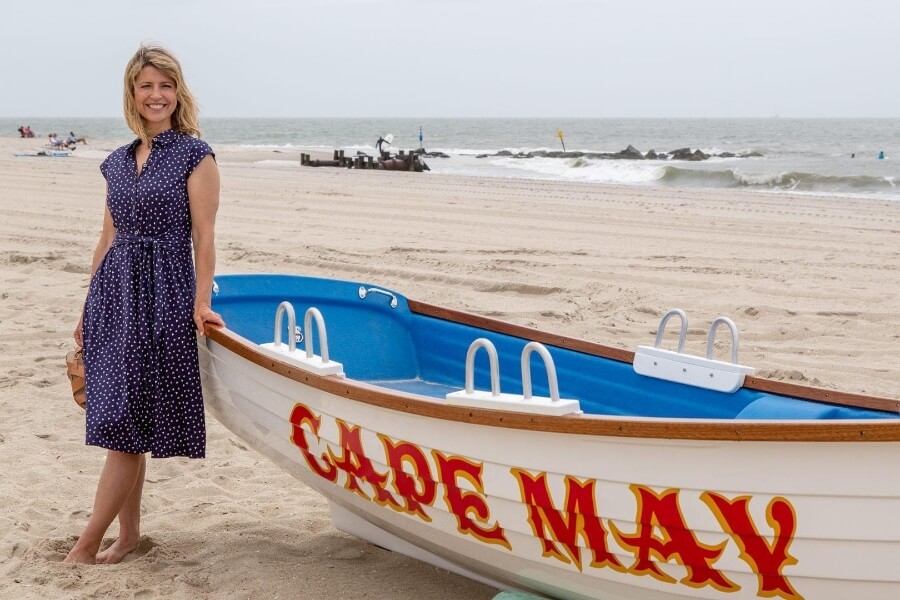
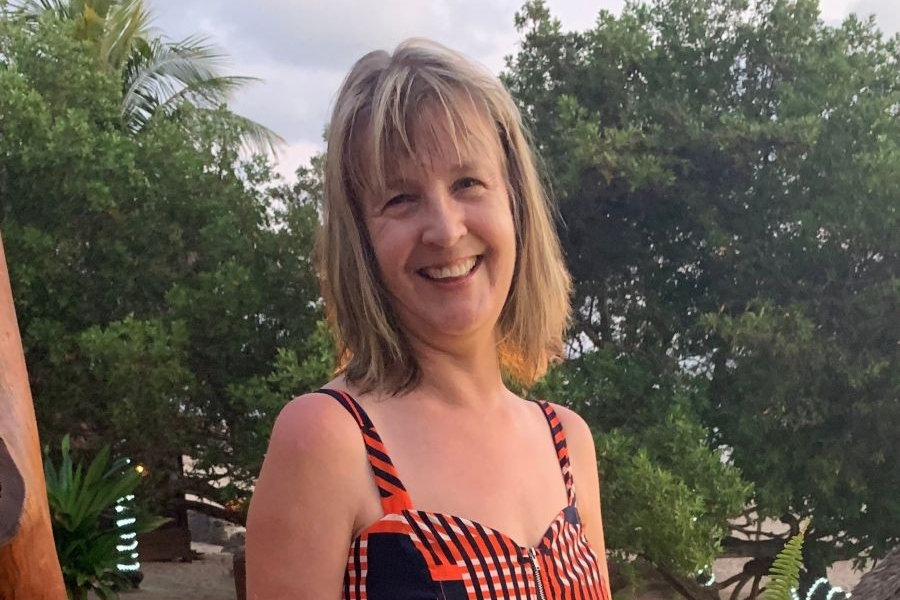





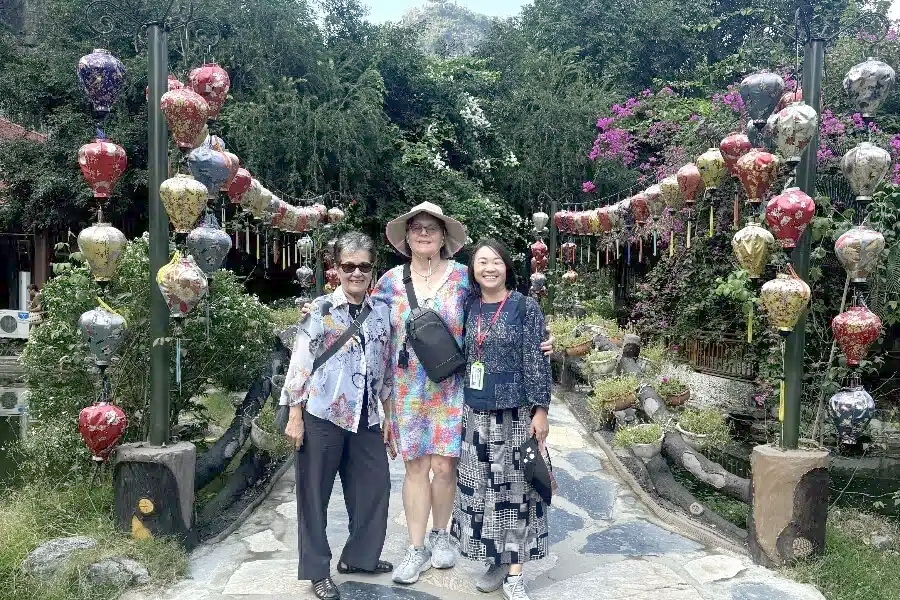

0 Comments